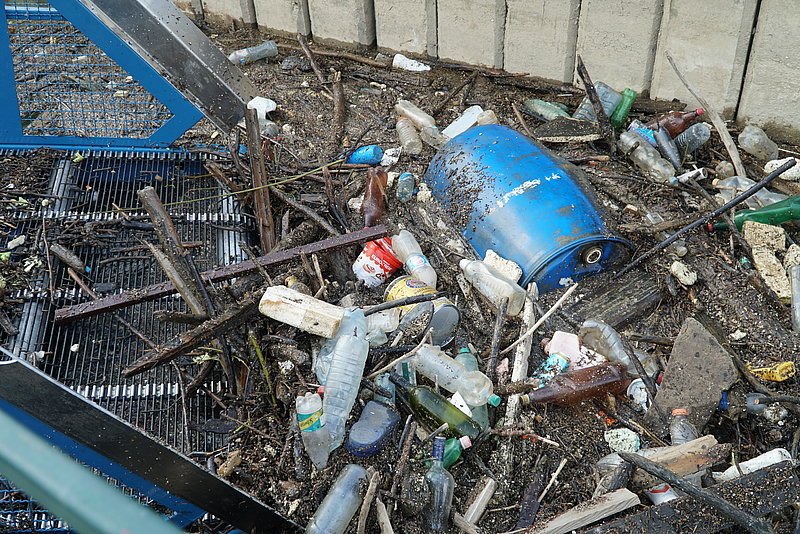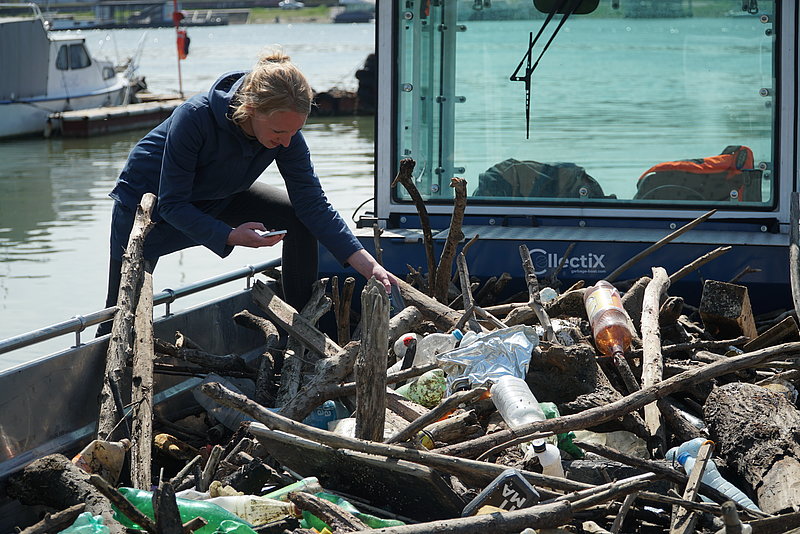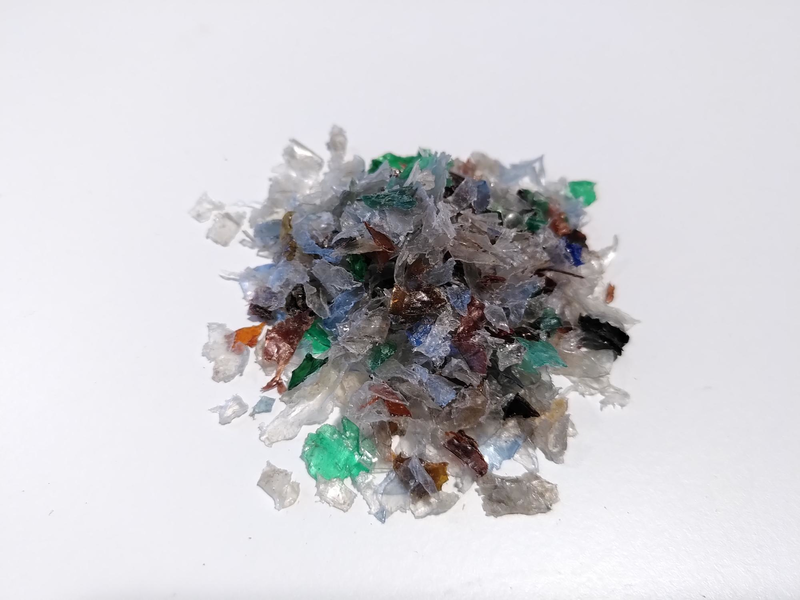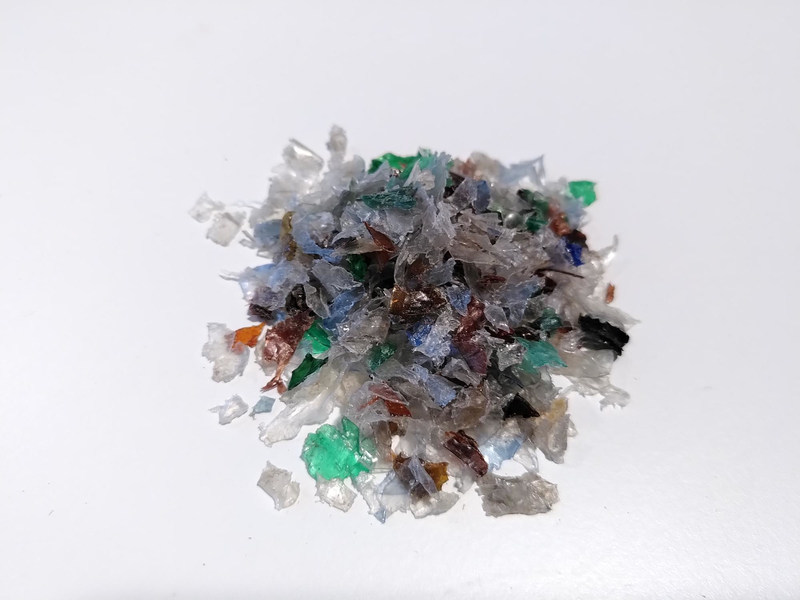Teamwork Par Excellence: "Fresh" Plastic Waste Gets Directly From Serbian Danube to MIX-UP Laboratories
A few months ago, our partner everwave started collecting plastic waste from the Danube in Serbia. Now it has a new purpose: MIX-UP scientists are examining the material in the laboratory. What exactly are they trying to find out?
It is one of the big problems of research: scientists spend years in the laboratory developing methods to make the world a little bit better. By doing so, there is always a difference between 'laboraty conditions' and 'environmental conditions' - or a difference in the material, that is focused on. When working with plastic, the big question arises: will it only work with virgin plastic or post consumer waste, or also with material which was collected from the environment -and thus is more contaminated, filthier and partly-degraded? MIX-UP is also confronted with this question - and is now taking an important step towards finding an answer.
In the coming weeks and months, some of our scientists will be working in their labs with contaminated material from aquatic environments - more precisly, from rivers.
This is made possible by the efforts of our partner everwave: In spring, a team from the marine conservation NGO left for Serbia to clean up the water along the banks of the Danube with the specialised rubbish collection boat of the "CollectiX" series. Everwave picked up more than 3000 kilogram of plastic from the Danube. Converted, that is more than 100,000 large plastic bottles. "The overall goal of everwave is to close the loop" says everwave CTO Tilman Floehr. "In addition to existing technologies such as mechanical or thermochemical processes, biotechnological upcycling has the potential to transform some of our collected material into value-added biomaterials that can be brought back into a cycle.”
"Great potential for MIX-UP and research in general"
Our consortium members, the University of Greifswald and RWTH Aachen University, have received some of the collected plastic over the past few weeks to submerge it in the laboratories and look for ways to recycle it in the best possible way. But read for yourself what our partners have to say:
The team from Institute for Technical and Macromolecular Chemistry (ITMC) at RWTH writes:
- "At our Chair of Translational Molecular Catalysis, we have developed and further optimised catalytic depolymerisation strategies as part of the MIX-UP project. The new technology enables us to chemically recycle plastics into value-added diols that can serve as material for further processes and thus close the carbon cycle. We are now applying this efficient approach to everwave’s collected plastic waste from the Danube. This will allow us to evaluate the robustness of the technology on real word waste and the contaminations associated with them, instead of pure and clean plastics usually used in the development process."
And our scientists from the University of Greifswald add:
- "We will investigate how the PET part - plastic bottles, for example - of the waste collected by everwave can be biodegraded under different conditions and with different PET hydrolases. We also look at how the degradation succeeds over a longer period of time at room temperature. In this way, we find out whether the biodegradation of plastics can take place at temperatures that are favourable for microbial growth under natural conditions. But that's not all: in another scenario, we degrade PET waste from the environment in an enzyme reactor at elevated temperatures that are optimal for rapid depolymerisation of the PET plastic. This is how we find out how efficiently the plastic can be degraded under industrial conditions."
Research on the Danube waste has just begun - but one thing is already becoming apparent: "It holds great potential for the MIX-UP research project and research in general that we can now work with polluted plastic as it is found in rivers around the world", says our project leader Professor Lars M. Blank from the Institute of Microbiology at RWTH Aachen. "Some of it is very different from marine litter in that most of it hasn't been in the water as long and is less weathered. As soon as we have hydrolysates from enzyme or chemocatalysis, we will test them as a carbon source for the synthesis of valuable materials with microbes."
Sounds wacky - but if you think about it, it's pretty cool! We are already excited to see what our scientists find out and will inform you about the results in a second blog post as soon as they are available: In this respect: Stay tuned.





